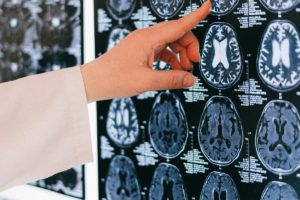Understanding how various mental health struggles can impact one another is important. Often, multiple diagnoses can intersect and sometimes even lead to the development of one another. When two conditions exist simultaneously, they are known as co-occurring disorders. One set of commonly co-occurring diagnoses includes bipolar disorder and substance use disorder (SUD).
Bipolar Disorder
Bipolar disorder is a mood disorder, meaning it impacts people’s emotional health. People who struggle with bipolar disorder experience intense periods of depression and mania. There are several medications that may be recommended for those with bipolar disorder. Therapy can be another great option for symptom management.
Substance Use Disorder
People who struggle with SUD experience detrimental effects on their physical and mental health. Substance use can impact the brain in various ways. Sometimes, substance use can cause, worsen, or result from the symptoms of another mental health diagnosis. For example, although some people may drink alcohol to self-medicate symptoms of depression, drinking alcohol can actually worsen depressive symptoms. Fortunately, there are many different treatment options for those struggling with addiction.
Co-Occurring Bipolar Disorder & Substance Use Disorder
If you have bipolar disorder, substance use could potentially worsen your symptoms. Many people who struggle with bipolar disorder turn to substances in an attempt to self-medicate. However, research shows that choice is never a good one.
There can be a genetic component to both substance use and bipolar disorder. For this reason, it’s important for individuals to understand their family history of mental illness. This way, they can make sure they are taking advantage of preventative measures whenever possible.
It’s common for individuals who have bipolar disorder to make rash decisions during a manic episode. This can mean turning to substances to prolong their feelings of mania. It’s also possible that decision-making skills could be impaired during a manic episode, leading individuals to use substances even if they wouldn’t regularly.
As mentioned above, some people may use alcohol and other drugs to self-medicate depressive symptoms. People with bipolar disorder may seek substances during depressive episodes.
Some people turn to substances because they feel that they’re the only option for managing their bipolar symptoms. Contrary to this belief, many healthier treatment options have proven effective for managing the symptoms of bipolar disorder.
If you have a history of substance use and have recently been diagnosed with bipolar disorder, consider speaking with a mental health professional about your options.
If you’re impacted by substance use disorder and bipolar disorder, it’s important to find support and resources that will help you better manage your mental health. At Avalon Malibu, we provide a variety of options for those who want to focus on wellness, sobriety, and managing the symptoms of various mental health diagnoses. We’re a great option for those who want to invest in their future by bettering their mental health. Give us a call at (844) 857-5992 to learn more about our services and if they could be the right fit for you.











